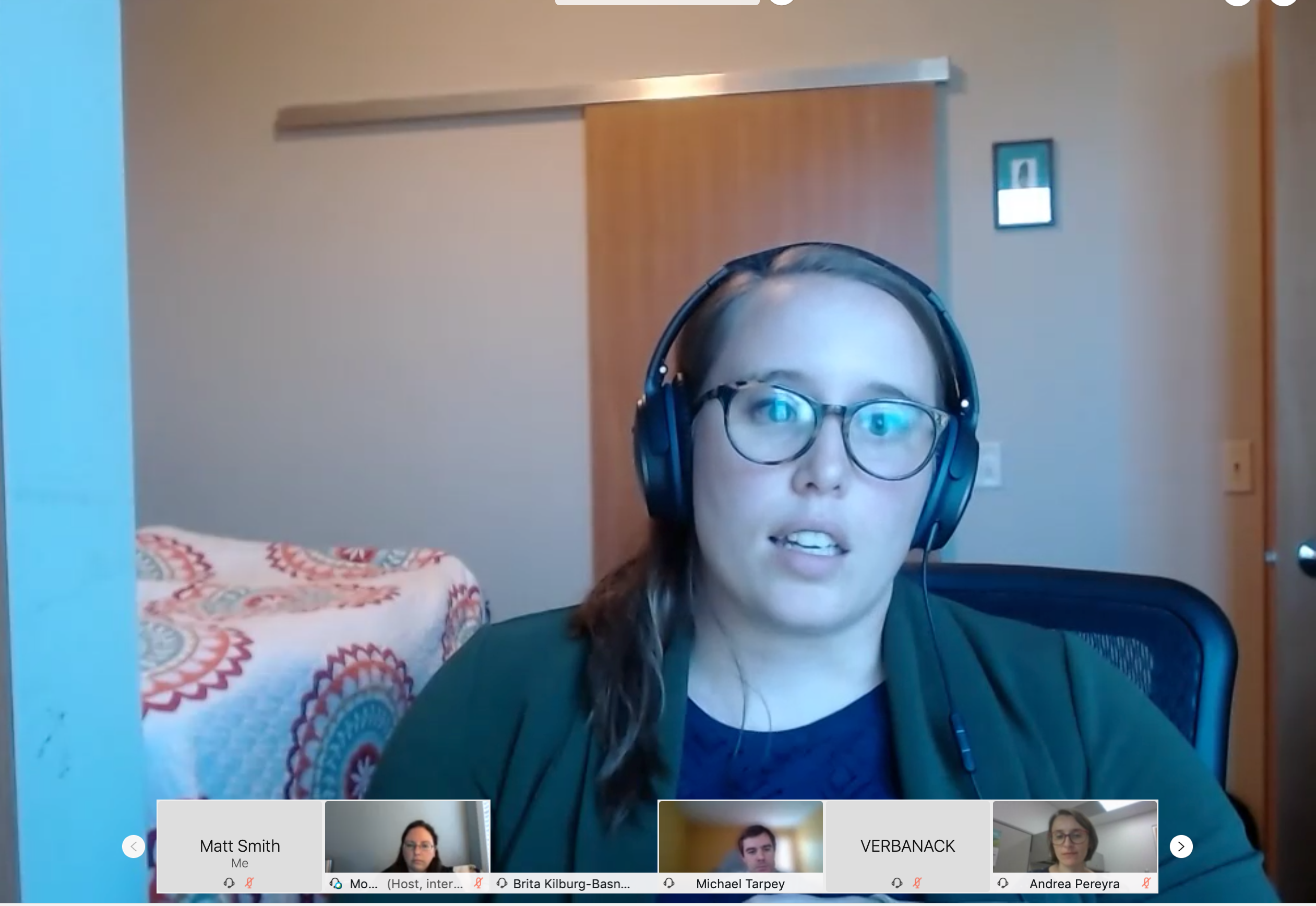Industry Jobs the Topic of Second Postdoc Alumni Panel
For the second time this year a group of East Carolina University postdoctoral scholar alumni met with current postdocs to discuss their transition from ECU to the workforce.
The Nov. 13 panel, hosted by the Office of Postdoctoral Affairs and led by former postdocs Brita Kilburg-Basnyat (Wisconsin Department of Public Health Services) and Michael Tarpey (Astra Zeneca), discussed the differences between working in an academic setting and a government or industry role.
For many postdocs there comes a time for them to choose a specific career path. The pair highlighted the benefits they saw in an industry or government position, while discussing the challenges they faced securing a job post academia.
“For me, it was about my priorities,” Tarpey said. “I realized an industry position was a better fit. I’d get comments back on submissions and sometimes I just felt the process was absurd. There’s some anxiety that comes with the process being out of your hands. My family was also expanding; I wanted to find something more stable.”

Former East Carolina University postdoctoral scholar Brita Kilburg-Basynat discusses the process she went through while trying to secure a job in the government/industry sectors.
Kilburg-Basnyat agreed, adding that she discovered other options that piqued her interest.
“I thought that something was going to click, and I’d feel strongly about something to dedicate my academic career to,” she said. “I learned that there were other options that drove my interests outside of the academic lab.”
Both shared that industry and government positions look for a different type of skill set in their employees.
“Academia put a lot of value on specific skill sets, but at a lot of industry jobs they’re going to train you to do things a specific way,” Kilburg-Basnyat said. “They have a training program and they’re going to teach you to do things their way. These positions valued soft skills, like organization, problem solving, researching and retaining new knowledge. The real question is, ‘Are you going to be able to fit in with our team and be able to work with others?’”
Tarpey said that networking played a key role in helping him prepare for interviews and work outside of ECU.
“I cold called people and got to know them well before I started looking for positions outside the university,” Tarpey said. “People are your best resource. Meet new people or reach out to them and get to know what kind of work they do. If you’re interested in a specific position or working for a specific company, reach out. They know the roles you’re looking at and they know the contacts.”
For current postdocs interested in working with industry and government agencies, Kilburg -Basnyat said that hosting guest speakers at postdoc events is a good start to building out networks.
“Continue to invite speakers and practice interviews in mock interview situations,” she said. “Keep track of your fellow postdocs for informational interviews. Sharing university ties help keep people invested.”
ECU is currently the home of 26 active postdocs across its academic affairs, health sciences, and research, economic development and engagement divisions.